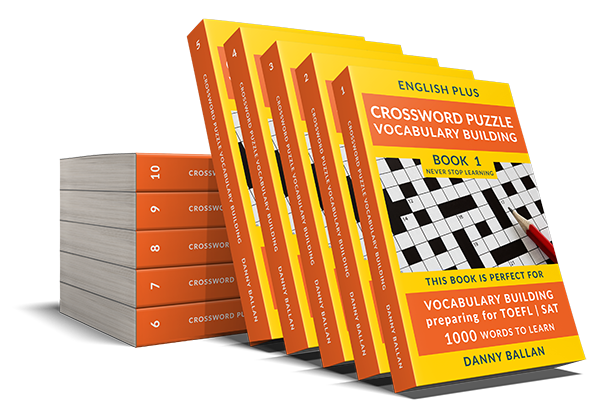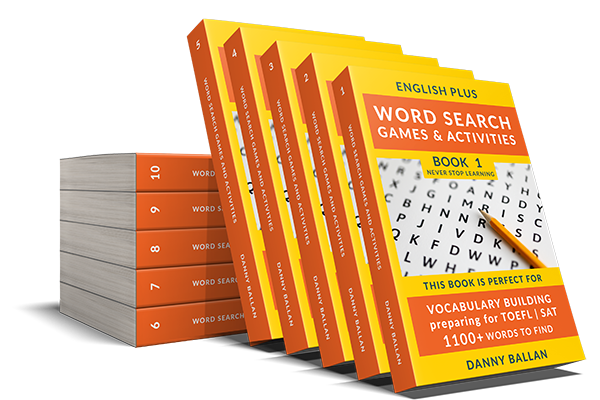
Understanding the Concept of Energy or Life Force: Exploring Chi, Prana, and Your Inner Vitality
Energy is more than just a physical force that powers machines and fuels the body. Across different cultures, the concept of energy or life force—often referred to as Chi in Chinese philosophy and Prana in Indian traditions—holds deep significance. These ancient ideas suggest that an invisible force flows through all living things, influencing our health, emotions, and overall well-being. Whether you view it as a spiritual essence or simply a way to understand the interconnectedness of life, exploring this concept can provide valuable insights into how you navigate your daily experiences.
What Is Chi and Prana?
Chi (also spelled Qi) and Prana are often described as the vital life force that flows through all living beings. In traditional Chinese medicine, Chi is believed to circulate through pathways known as meridians, affecting everything from physical health to emotional balance. Similarly, in Indian traditions, Prana is the energy that permeates the universe and sustains life. It is said to move through channels called nadis and is controlled through practices like breathwork (Pranayama) and meditation.
These concepts may seem abstract, but they serve as frameworks for understanding how energy impacts our lives. When our Chi or Prana is balanced and flowing freely, we feel energized, healthy, and in harmony with our surroundings. When it’s blocked or depleted, we may experience fatigue, stress, or illness.
The Real-Life Relevance of Energy Concepts
While the ideas of Chi and Prana might be rooted in ancient philosophies, their relevance extends into modern life. Consider how you feel on days when you’re full of energy compared to days when you’re drained. That sense of vitality—or lack thereof—can be understood as your life force being either abundant or diminished.
- Physical Health: Just as Chi or Prana is believed to flow through the body, your physical health can be seen as a reflection of how well your energy is balanced. Practices like yoga, Tai Chi, or acupuncture are designed to enhance the flow of energy, promoting overall wellness. Even regular exercise and a balanced diet can be seen as ways to nurture your life force.
- Emotional Well-being: Emotions can also be influenced by your energy levels. When your energy is balanced, you’re more likely to feel calm, focused, and positive. On the other hand, when your energy is disrupted, you might experience anxiety, irritability, or a sense of being overwhelmed.
- Mental Clarity: Energy isn’t just about the body—it’s also about the mind. Practices like meditation and mindfulness can help clear mental blockages, allowing your energy to flow more freely and improving your ability to concentrate and make decisions.
How Can You Cultivate Your Life Force?
Understanding the concept of energy or life force is one thing, but how can you apply it to your daily life? Here are some practical ways to nurture your Chi or Prana:
- Breathwork: Breath is closely linked to life force in many traditions. Practices like deep breathing, Pranayama, or even simple mindfulness exercises can help you harness and balance your energy. Try starting your day with a few minutes of focused breathing to set a positive tone.
- Movement: Activities like yoga, Tai Chi, and Qi Gong are designed to stimulate the flow of energy through the body. Incorporating these practices into your routine can enhance both your physical and mental well-being.
- Diet and Nutrition: What you eat can influence your energy levels. A diet rich in whole foods, fruits, and vegetables can help sustain your life force, while processed foods may deplete it. Pay attention to how different foods make you feel and adjust your diet accordingly.
- Mindfulness and Meditation: Taking time to quiet the mind and focus inward can help you reconnect with your inner energy. Regular meditation practice can clear mental blockages and allow your life force to flow more freely.
- Rest and Recovery: Just as important as activity is rest. Ensuring you get enough sleep and taking time to relax can replenish your energy and prevent burnout.
The Importance of Understanding Your Energy
Recognizing and cultivating your life force isn’t just about enhancing your well-being—it’s about gaining a deeper understanding of yourself. By tuning into your energy, you can become more aware of how your lifestyle, emotions, and environment affect you. This awareness can empower you to make choices that support your health, happiness, and personal growth.
For example, if you notice that certain activities drain your energy, you might choose to limit them or find ways to counterbalance them with practices that rejuvenate you. If you find that you’re consistently low on energy, it might be a signal to reevaluate your habits, relationships, or even your mindset.
Take Action
Energy is the foundation of life, and understanding how it flows through you can lead to profound changes in how you live. Start by paying attention to your own energy levels throughout the day. Notice what activities, foods, or environments boost your energy and which ones drain it. From there, take steps to cultivate and balance your life force—whether through movement, breathwork, mindfulness, or simply making healthier choices.
By exploring the concept of energy or life force, this article encourages you to tap into your own vitality and take action to enhance your well-being. How will you nurture your Chi or Prana today? Start by making small changes that help you feel more energized and in tune with yourself.
Expand Your Vocabulary
- Chi
- Meaning: A concept in Chinese philosophy referring to the vital life force that flows through all living things, believed to be essential for health and well-being.
- In Context: The article discusses how Chi is the energy that circulates through the body, influencing physical and emotional health. In everyday language, you might use Chi to describe someone’s energy or vitality, like, “She has a calm and balanced Chi that makes her feel grounded.”
- Prana
- Meaning: A term in Indian traditions that refers to the life force or energy that permeates the universe and sustains life.
- In Context: Prana is central to practices like yoga and meditation, as the article explains. You might use Prana in a similar context, such as, “After practicing deep breathing, I feel like my Prana is flowing more freely.”
- Vitality
- Meaning: The state of being strong, active, and full of energy; life force.
- In Context: The article uses vitality to describe the energy or life force that keeps us feeling healthy and energized. In daily conversation, you might talk about vitality when referring to someone’s energy levels, like, “Eating well and exercising regularly gives me a sense of vitality.”
- Meridians
- Meaning: Pathways in the body through which Chi is believed to flow in traditional Chinese medicine.
- In Context: The article mentions meridians as channels that influence health by allowing energy to flow. You might use this term in discussions about alternative medicine, such as, “Acupuncture works by stimulating specific meridians to balance energy.”
- Nadis
- Meaning: Channels in the body through which Prana flows, according to Indian traditions.
- In Context: The article explains that nadis are similar to meridians and are key to practices like yoga. In everyday language, you might use nadis when discussing energy flow in holistic health practices, like, “Yoga helps clear my nadis, making me feel more energized.”
- Breathwork
- Meaning: The practice of controlling your breathing to influence your mental, emotional, and physical state.
- In Context: The article highlights breathwork as a way to cultivate Chi or Prana. You might use this term when talking about breathing exercises, like, “Incorporating breathwork into my morning routine has helped me stay calm and focused.”
- Mindfulness
- Meaning: The practice of being fully present and engaged in the moment, often through meditation or focused attention.
- In Context: The article suggests mindfulness as a way to connect with your inner energy. In everyday conversation, you might use mindfulness to describe staying focused, like, “Mindfulness has helped me reduce stress by keeping me in the present moment.”
- Balance
- Meaning: A state of equilibrium where different elements are in the correct proportions or working harmoniously.
- In Context: The article discusses balance in terms of energy flow and overall well-being. In daily life, you might talk about balance when referring to managing different aspects of life, like, “Finding a balance between work and relaxation is key to staying healthy.”
- Flow
- Meaning: The movement or circulation of energy, thoughts, or actions in a smooth and continuous manner.
- In Context: The article uses flow to describe how Chi and Prana move through the body. In everyday language, you might refer to flow when talking about a smooth process, like, “When I’m in the flow, everything seems to fall into place naturally.”
- Rejuvenate
- Meaning: To restore energy, vitality, or freshness.
- In Context: The article encourages practices that rejuvenate your life force. You might use this term when talking about activities that make you feel refreshed, like, “A good night’s sleep always rejuvenates me for the day ahead.”
Let’s Talk
- How do you personally experience energy or vitality in your daily life? What activities or practices help you feel more energized and balanced?
- This question invites you to reflect on your own experiences with energy and consider how you can incorporate practices that enhance your vitality.
- The article discusses the concepts of Chi and Prana as life forces that flow through us. Do you believe in the idea of an internal energy or life force? How do you think it influences your health and well-being?
- This question encourages you to explore your thoughts on the concept of life force and how it might relate to your physical and emotional health.
- Breathwork and mindfulness are suggested as ways to cultivate your life force. Have you tried these practices, and if so, how have they impacted your energy levels or mental clarity?
- This question prompts you to think about your experiences with breathwork or mindfulness and how they might affect your overall energy and focus.
- Balance is a key theme in the article. How do you maintain balance in your life, and what strategies do you use when you feel out of sync or overwhelmed?
- This question encourages you to reflect on how you manage balance in your life and what adjustments you make when things feel unbalanced.
- The article suggests that energy flow can be influenced by diet, movement, and rest. How do your daily habits contribute to your energy levels, and what changes could you make to improve your vitality?
- This question invites you to examine your daily routines and consider how they impact your energy, motivating you to make positive changes.
By engaging with these questions, you can deepen your understanding of the concepts of energy and life force and explore how they apply to your own life. Discussing these ideas with others or reflecting on them personally can lead to valuable insights and a greater sense of well-being.
More Videos
The Thrilling Life of a Professional Race Car Driver: More Than Just Speed
Discover the thrilling life of a professional race car driver. Learn about the skills, challenges, and rewards of this high-octane career and what it takes to succeed in the fast lane.
The Future of Interaction: How Social Media Will Continue to Shape Our Relationships
Explore the future of social media and its impact on human interaction. Discover how evolving platforms will continue to shape our relationships, communication, and society.
Listening Comprehension | The Water Cycle
Explore the fascinating journey of water in this engaging lecture on the water cycle. Learn how evaporation, condensation, and precipitation work together to sustain life on Earth.
Writing Effective Prologues and Epilogues: Crafting the Perfect Bookends for Your Story
Learn how to write effective prologues and epilogues that enhance your story. Discover tips and techniques to make these bookends impactful and meaningful for your readers.
Exploring ‘The Remains of the Day’: A Poetic Reflection on Memory and Regret
Dive into Kazuo Ishiguro’s “The Remains of the Day” poem, a profound exploration of memory, regret, and the passage of time. Discover its thought-provoking themes and lasting impact.
Top Foods to Boost Your Immune System: Nourishing Your Body for Health and Vitality
Discover the top foods to boost your immune system and keep you healthy. Learn how these nutrient-rich foods can help protect your body from illness and improve overall wellness.
Khalid ibn al-Walid: The Sword of Allah and His Unbeatable Legacy
Discover the life and legacy of Khalid ibn al-Walid, a legendary military commander known as the Sword of Allah. Explore his greatest achievements and lasting influence on the world.
Listening Comprehension | Mental Health Awareness
Learn the importance of mental health awareness in this engaging lecture, perfect for high-intermediate to advanced English learners. Discover practical ways to nurture your mental well-being and break the stigma around mental health.
Addressing Access to Healthcare and Healthcare Disparities: A Path Toward Equity
Explore the critical issue of healthcare access and disparities. Learn why these gaps exist and how we can work together to create a more equitable healthcare system for all.











